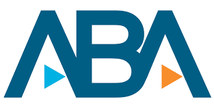|
by Tom Gordon
The American Bar Association is cracking down on voices for change within its membership, including threats to the continuing existence of its Center for Innovation and wholesale changes to the Center's board that appear designed to neuter it. This crackdown came to light in conjunction with the ABA's cancellation of a piece that I co-authored for the Center for Innovation, which was scheduled to be published this week. Bob Ambrogi has throughly reported the story here.
0 Comments
by Madison Swanson  Responsive Law recently participated in a working group to amend American Bar Association Proposed Resolution 10A, a set of best practices for online legal document providers (OLPs). In July of last year, the New York State Bar Association (NYSBA) proposed a set of crippling regulations for OLPs that was subsequently withdrawn after Responsive Law assembled a coalition of opponents to block the proposal. The NYSBA amended the resolution and proposed it again this past January, but Responsive Law still found many issues with the best practices the revised 10A promulgated. Therefore, we again mobilized our allies to oppose Resolution 10A. In response to our opposition and the comments we submitted, the ABA convened industry and consumer groups and bar representatives to address outstanding issues with the Resolution. At this meeting, we made it clear what our main concern with this resolution was: many of the proposals created expensive and unnecessary obligations for OLPs that would raise the cost of the services that OLPs offer. The NYSBA and the ABA claimed that the best practices in Resolution 10A would protect consumers. In reality, they would negate the major advantage of OLPs, which is to increase access to understandable and affordable legal tools. Overall, Responsive Law is pleased with the changes that were made to Resolution 10A during the working group process. Many of the superfluous regulations that would have increased the cost of using OLPs were stricken and many of the remaining best practices create advantages for the consumer. Our work, however, is not done. Not only are there several outstanding issues, but Responsive Law takes issue with the premise of the resolution. We do not believe that the ABA, a trade organization, should be promulgating best practices for its competitors. Proposed Resolution 10A, with the changes made during the working group process, will be presented again to the ABA House of Delegates in August 2019. by Tom Gordon
A set of proposed best practices for online document preparation software is scheduled to be voted on by the American Bar Association House of Delegates at the ABA Midyear Meeting on Monday. Responsive Law has submitted comments to the ABA opposing the proposal. Many of the proposed practices would add unnecessary features—and costs—to an industry that is based on providing streamlined services when a lawyer is either unaffordable or just unnecessary. Beyond our substantive objections, we find it troubling that the trade association for lawyers is trying to regulate (or even suggest regulations for) non-lawyer businesses that are not engaged in the practice of law. As we point out in our comments, it's as if the Alliance of American Automobile Manufacturers set forth best practices for bicycle manufacturers that included safety features that would exponentially raise the price of bicycles. Such a move would be seen, at best, as an misguided attempt to make bicycle riders safer that would backfire by denying most people access to bikes. More likely, it would be seen as a clumsy attempt by the auto industry to beat a competitor through regulation. I'll be attending the ABA's meeting to try to convince members of the House of Delegates that this proposal is both misguided and inappropriate. Watch this space for further updates. by Richard S. Granat
Online legal document providers would be regulated under a resolution proposed by the New York State Bar Association and the New York County Lawyers Association to the American Bar Association for approval at its annual meeting in Chicago this August. The proposal was submitted without providing an opportunity for comment and review by interested parties and other ABA entities. An annotated version of the Resolution with Responsive Law's comments can be found here. Proposed ABA Amendments on Lawyer Advertising Don’t Benefit Consumers’ Rights or Protection3/16/2018 Written by Carolyn Mobley
Responsive Law has submitted comments opposing the American Bar Association’s amendments to rules on lawyer advertising because the amendments do not do enough to improve and streamline those rules. |
Blog History
Archives
February 2024
Categories
All
|
-
Advocacy
- Requiring Public Oversight of Lawyer Regulation
- Non-Lawyer Assistance and Unauthorized Practice of Law >
- Alternative Business Structures
- Lawyer Advertising
- Online Legal Services and Multijurisdictional Practice
- ABA Commission on the Future of Legal Services
- ABA Commission on Ethics 20/20
- Protecting Client Rights
- Limited Scope Representation ("Unbundled" Legal Services)
- Simplifying Courts
- Blog
- Issues
- About Us
- Donate
- Top Stories 2023
- Legal Help
- Report Card
- Receive Updates

 RSS Feed
RSS Feed